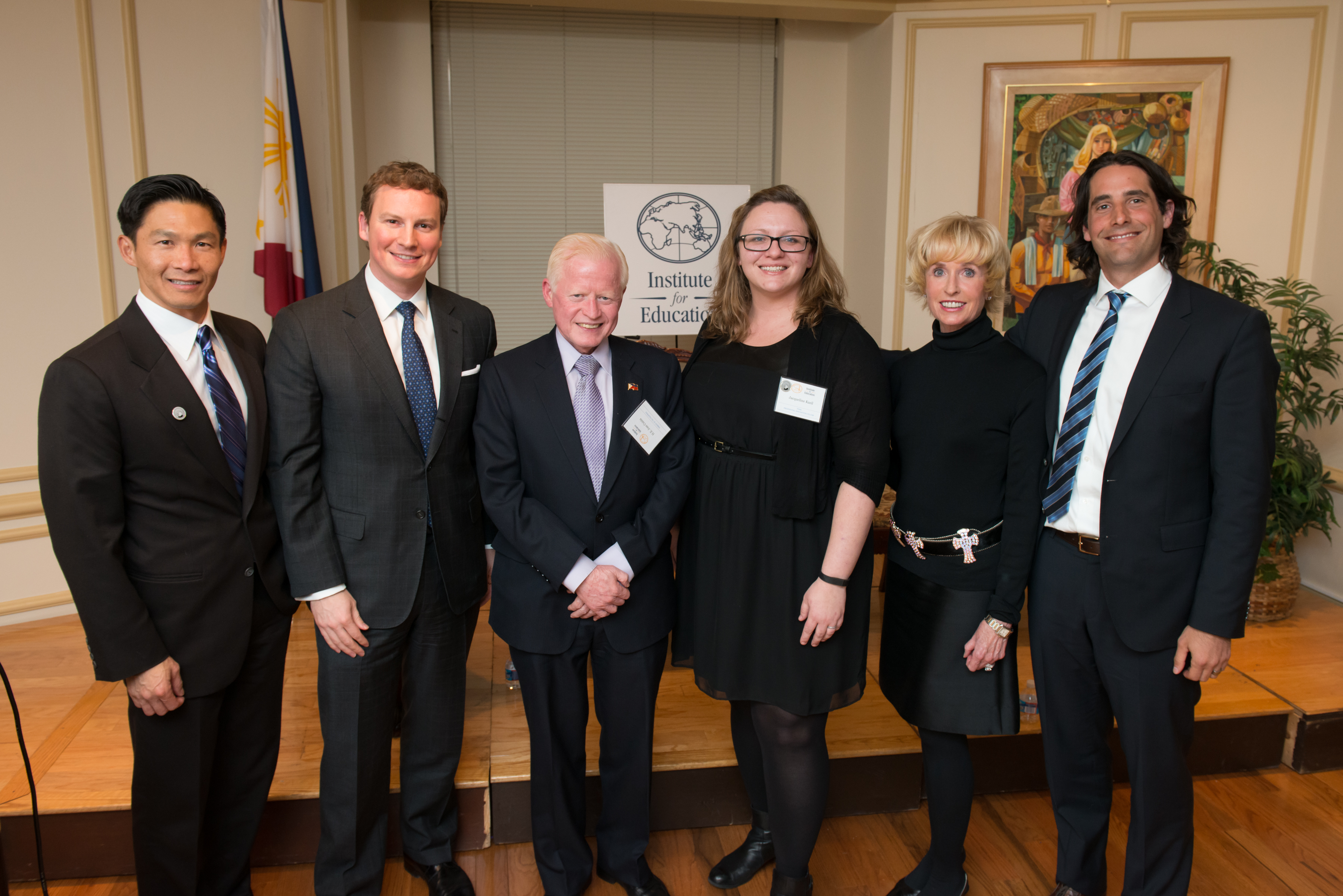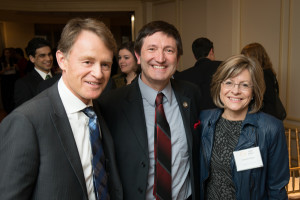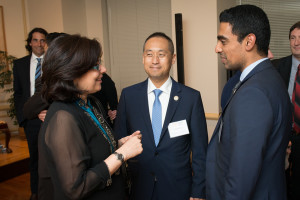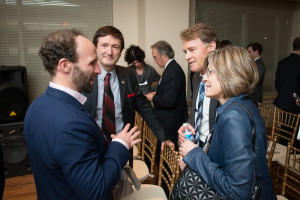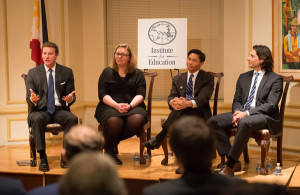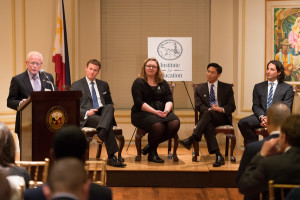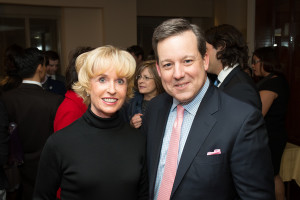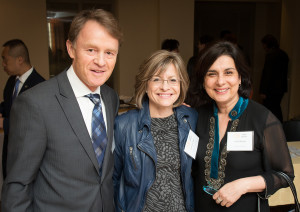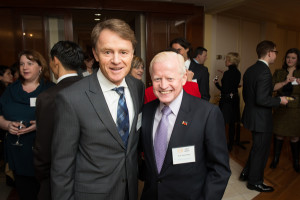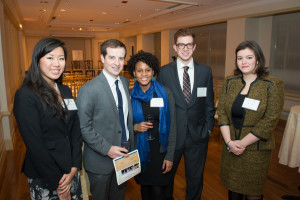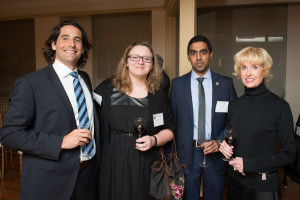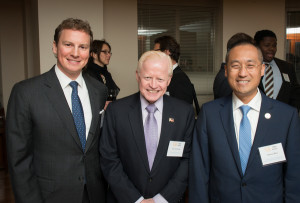Innovation might not be the first word that comes to mind when we think of Washington. As the center of the federal government, where political divisions often stifle risk-taking and creative collaboration, our city is better known for its hidebound ways. But a group of cutting-edge technologists with a direct line to White House leadership and the latitude to implement the best new ideas from the private sector, non-profits, and academia, is helping to change that reputation. Since its inception in 2012, the Presidential Innovation Fellows (PIF) program, the brainchild of John Paul Farmer, Institute for Education Emerging Markets Roundtable Cofounder and former White House Senior Advisor, and his boss, US Chief Technology Officer Todd Park, has brought 61 talented individuals from across industry to Washington to identify ways our government could be working smarter and leaner. At a salon hosted by HE Jose Cuisia, Ambassador of the Philippines, in front of an audience that included IFE Steward Chris Caine, Mercator XXI, David Fenstermaker, Raymond James & Associates, IFE Board of Stewards Chair Marci Robinson, Robinson Communications, the Ambassadors of Singapore, Switzerland, and 13 Presidential Innovation Fellows, Farmer and a panel of three PIFs shared some of the success stories that have already emerged from this remarkable program. “In the first six months we saw that this was a really promising way of solving problems,” said Farmer. That promise has yielded impressive results. Panelist Adam Dole, a PIF working on MyData Initiatives in the Department of Health and Human Services, said that the Blue Button technology format now enables over 100 million Americans with secure access to their personal health information. Giving patients ownership of their data empowers them to make better health care choices when they’re sick, explained Dole, and can help them identify unmet needs when they’re well. Farmer told the story of Randy, a Vietnam veteran with a history of heart problems who had downloaded his Blue Button health information. Randy recently suffered a heart attack, and though incapacitated, he received the right care because he had printed a copy of his records and put them in his pocket. At the other end of the data spectrum, Open Data Initiatives that liberate community-level information has spread from healthcare to the energy and education sectors as well, said Farmer. It is now a global phenomenon that could add three to five trillion dollars per year to the global economy, according to a recent study by McKinsey & Company. The evening had a recurring theme: experimentation drives innovation. Identifying promising, out-of-the-box ideas and nurturing them at modest scale with the aim of expanding them when they prove effective is the approach that panelist Scott Wu, a PIF working at USAID, brought to global development. Wu, with a background in venture capital and investment banking and a passion for tackling tough global challenges, said the Development Innovation Ventures (DIV) program at USAID is “a great example of leveraging the resources of the public sector with the private sector and non-profits to solve problems.” Using a model that embraces ideas from unconventional sources, DIV has made nearly 90 investments in nine countries — starting small and scaling up as results are proven. Wu said he was unsure what to expect when he first came to Washington. As a veteran of the private sector, his instinct was to stay away, but like other PIFs and many already working in the federal government, his desire to contribute his talents and ideas spurred him to overcome that reticence. What he found surprised him: innovation was already here. “I discovered that there were pools of brilliant, passionate, dedicated people who were navigating the red tape to get things done,” he said. Panelist Jacqueline Kazil, a PIF working at FEMA, echoed Wu’s comments, and pointed to innovative work in the wake of Hurricane Sandy, when FEMA crowdsourced citizens’ photographs of damage on the ground in order to prioritize needed relief to the hardest hit areas. “I was blown away by the sense of urgency to get things done,” said Dole. “And by the pure horsepower that people in government bring to their daily jobs. It’s humbling.” Farmer wrapped up the panel discussion by thanking the Fellows for the near-term good they are accomplishing and also for the long-term benefits that he believes will come about from the injection of entrepreneurial processes – such as Lean Startup, Design Thinking, and Agile – into how the federal government works. The salon concluded on a lighter note with Fox News White House Correspondent and IFE Steward Ed Henry conducting a series of political and sports polls. Henry asked the audience which team they thought would win more games in 2014: the Washington Redskins football team or the Washington Kastles tennis team. In the wake of this season’s Redskins implosion, which culminated in the dismissal of head coach Mike Shanahan, the crowd showed little faith in the Skins’ immediate future: all hands voted for the Kastles. That vote of confidence should bring a smile to Kastles owner, and longtime friend of IFE, Mark Ein.
Written by Mark Schulte, IFE Fellow and Education Director at the Pulitzer Center on Crisis Reporting
Click here to review: INFO event photos | The Presidential Innovation Fellows (PIF) Program | Panelists’ Bios |Program & Guest List | Event Roundup | Washington Diplomat Spotlight PDF
Click to watch: INFO PIF Video on ‘Civic Innovation”
